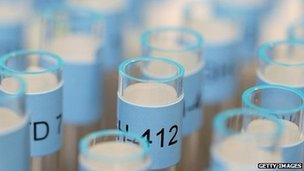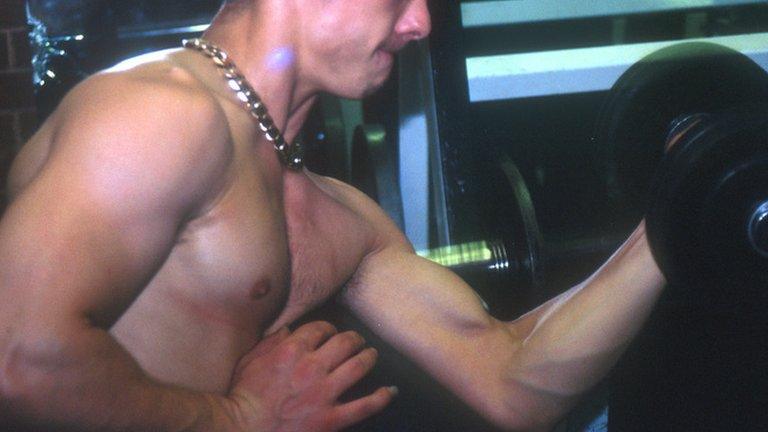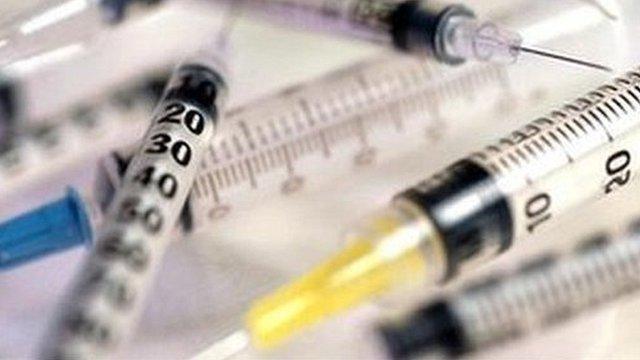UK Anti-Doping gives steroids trafficker first lifetime ban
- Published
Phillip Tinklin used to drive his children to boxing competitions
The father of five boxers has become the first person to be given a life-time sports ban after admitting the supply of anabolic steroids.
Philip Tinklin, 43, from south Wales, has received the first lifetime ban from UK Anti-Doping (UKAD).
His 20-year-old daughter champion amateur boxer Sophie Tinklin has been given a four-year ban.
The pair were found to be in breach of three anti-doping rules by the National Anti-Doping Panel.
Tinklin, from Risca in Caerphilly county, is the first person to be banned from involvement in sporting competitions for life since UKAD formed in 2009.
His daughter has competed at Welsh Amateur Boxing Association (WABA) elite level, and was the 2013 Welsh women's champion in the 48kg weight class.
UKAD chief executive Andy Parkinson described this a "landmark case" and said the body wants to target the supply chain of performance-enhancing drugs.
The pair were banned for:
Possession of one or more prohibited substances
Trafficking or attempting trafficking of prohibited substances
Assisting, encouraging, aiding, abetting or covering up or any other type of complicity involving an anti-doping rule violation or any attempted anti-doping rule violation

Sophie Tinklin was a Welsh women's amateur boxing champion
Earlier this year Tinklin pleaded guilty at Cardiff Crown Court to one count of supplying anabolic steroids, which he admitted exchanging for other banned substances.


Selection of the steroids found in police raid on Tinklin's house
722 tablets containing methyltestosterone
1,948 tablets containing stanozolol - the drug sprinter Ben Johnson tested positive for at the 1988 Olympics
36 x 10ml vials containing testosterone
Source: National Anti-Doping Panel

Well known in the world of amateur boxing in South Wales, Tinklin used to drive his five children and others to WABA events and competitions.
The UKAD said Tinklin's ban was more severe than his daughter's because he took the lead in the offending.
'Family business'
Although not officially affiliated to any organisation, under the terms of anti-doping legislation, he has been classified as 'athlete support personnel' - and has been given a lifetime ban from all sporting competitions and events.
The tribunal ruled that due to the amount of drugs in the family home - 2,770 tablets containing different steroids and 83 vials of drugs which were left in plain view on kitchen worktops, the windowsill and in the fridge - Miss Tinklin must have known they were there.
The decision document said it was entirely implausible she was not aware of "what essentially amounted to the family business of anabolic steroid supply".
Miss Tinklin's ban expires on 18 February, 2018.
UKDA work with about 220 sporting federations and the ban prohibits the Tinklins from any involvement of any kind with these organisations.
Although the ban does not extend to being on sport clubs' premises, UKDA solicitor Stacey Shevill said it sends "a loud message" to clubs and gyms who will question whether they want these people on-site.
- Published16 April 2014

- Published30 April 2013

- Published16 April 2014
